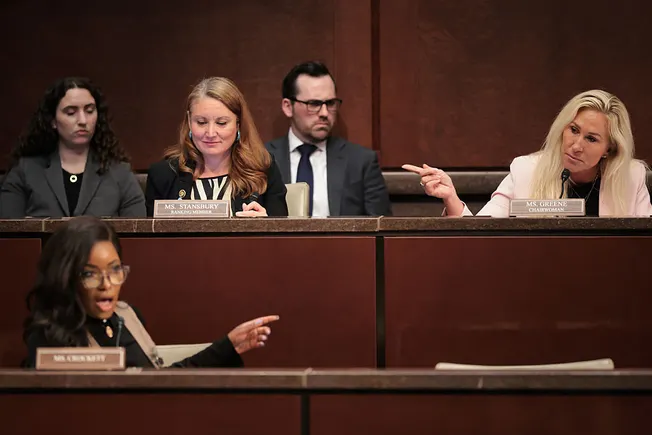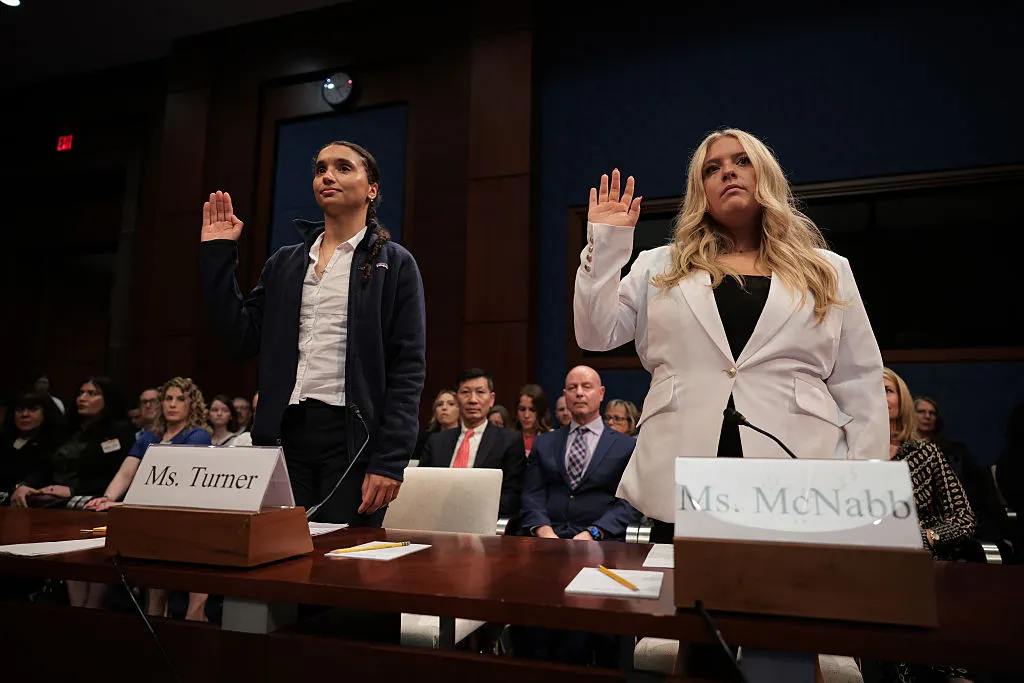After years of court battles, a federal judge ushered in a new era for college athletics earlier this month when she approved a settlement in the House v. NCAA antitrust lawsuit, effectively ending the century-old model of student athletes as amateurs.
Now students will be able to earn money for their athletic performance at colleges that opt in to the practice known as revenue-sharing, in which institutions share with players the money made off their teams. Former Division I athletes from the recent past will also share a $2.8 billion settlement to compensate for the financial opportunities they were denied due to now-defunct NCAA rules that prevented them from cashing in on name, image, and likeness deals.
Although the NCAA status quo was undone in an instant, many campus leaders had been planning for months, anticipating the outcome of the ruling.
The era of paid college athletes officially begins July 1. With it comes questions about how the landscape will evolve and concerns about equity issues, as well as what the fallout of the settlement may mean for nonrevenue sports.
A State of Transition
Experts view revenue-sharing as the most consequential part of the settlement.
Institutions that opt in to revenue sharing will have up to $20.5 million to spread among their athletes. The lion’s share of that is expected to flow to football, the top revenue-earning sport, followed by men’s basketball, with the second-highest distribution amounts. The annual revenue-sharing cap will increase gradually to $32 million over the course of a decade.
Jason Montgomery, a partner at the law firm Husch Blackwell, said that one commonly discussed formula would see 75 percent of revenue disbursed to an institution’s football team, followed by 15 percent to men’s basketball, 5 percent to women’s basketball, and the remainder spread across all other sports. But he noted institutions can adjust that formula as they see fit.
At institutions that don’t have a football team, the bulk of the revenue will likely be directed to men’s basketball. And some universities that have top basketball programs are tweaking the formula to direct more money to hoops; the University of Houston, for example, may opt for a formula that directs 23 to 25 percent of revenue to men’s basketball, local media reported.
The back-pay provision is also heavily tilted toward football, which has already prompted an appeal on Title IX grounds, with plaintiffs alleging women are being shorted on damages. The suit, brought by eight former college athletes who competed in soccer, track and volleyball, argues that female athletes are being deprived of more than $1 billion in past damages.
Financial Models
For those opting in to revenue-sharing, a major question looms: Where will the money come from?
Sean Frazier, athletic director at Northern Illinois University and president of the National Association of Collegiate Directors of Athletics, said financial models will vary by institution.
“You’re going to see a lot more of that innovative way to revenue-share by getting this money from external sources that are not specific to the universities themselves,” Frazier said.
Some colleges are leaning on boosters and TV deals to bankroll revenue-sharing, while others are taking different approaches. Earlier this month, the Florida Board of Governors approved the use of auxiliary funds to pay student athletes, which could flow from college bookstores, student housing, dining, parking fees and other income streams. (That measure is intended to be temporary as colleges develop long-term plans.)
In addition to increasing revenues, colleges are looking for ways to cut costs. Montgomery said one way colleges can do that is by eliminating non-revenue-earning sports—such as swimming and track and field—which some institutions have done, though that move has also been accompanied by other financial challenges for the sector.
Colleges that opt in to the revenue-sharing model don’t have to pay the maximum amount unless they choose to. That could yield scenarios where less resourced institutions pay much less than the $20.5 million cap.
While experts say there is no firm data point yet on how many colleges have opted in to revenue sharing, those numbers are likely to be just a fraction of the NCAA’s member institutions. As of last summer, that number stood at 1,085 institutions, with 355 at the Division I level.
“The vast majority of colleges are not going to be part of this revenue-share,” said Michael McCann, a professor at the University of New Hampshire’s Franklin Pierce School of Law.
Opportunities for Innovation
Frazier compared college athletics in the aftermath of the House settlement to flying a plane while building it. He expects colleges will adjust their approaches as they go.
“It is clunky right now because of the fact that we do not have certain guardrails yet finalized as we go into this. That’s why it’s going to be a little bit of a wait-and-see on some things,” he said.
He urged patience for those trying to navigate the new landscape.
“I would caution [college] leaders to not jump to trends, to not jump to any situation as a quick fix,” Frazier said. “There’s no silver bullet to be able to manage this. We’re going to have to go through a cycle to really understand what the impacts of the House settlement mean.”
McCann expects that colleges will largely pay football players, as they have signaled. Where the money flows, he said, will depend on institutional priorities. If an athletic department is focused on keeping up with rival football teams and landing on television, revenue-sharing money will be invested in football. But he thinks leaders should consider investing in other areas, including women’s sports—which have boomed in recent years, judging from the record viewership for women’s basketball.
“I see an opportunity for schools that opt in to revenue-share to not follow the script of spending most of the money on football players,” McCann said. “I could see some presidents being innovative and saying, ‘Let’s use that money primarily on women’s basketball; let’s try to create a top women’s basketball team, or softball.’ There are opportunities to distribute money in ways that I think are a lot more innovative than simply trying to catch up with all the other football schools.”
The Professional Era
To many experts, this moment amounts to the professionalization of college athletics.
“If this isn’t pay to play, I don’t know what is,” Montgomery said.
To Montgomery’s point, some colleges have hired general managers and other personnel with professional sports experience. Last year Stanford University tapped former star quarterback Andrew Luck, who spent seven years in the NFL, to return to his alma mater as general manager of the football program. Similarly, in March the University of California, Berkeley, hired former NFL player and head coach Ron Rivera as general manager of its football program.
Noting that trend, McCann suggested such programs are “operating as quasi pro teams.”
Federal Legislation?
For years, observers have speculated that Congress might get involved in college athletics. President Donald Trump has raised the possibility of his own involvement as well; in May, he proposed establishing a presidential commission on college sports before backing off the idea.
However, many experts don’t expect federal legislation to emerge.
“It’s a long shot that Congress intervenes,” Montgomery said, arguing that college athletics is not a priority for lawmakers at the moment. At most, he said Congress might codify the House settlement through federal legislation.
McCann agrees. While he believes “there will be bills introduced, and there will be press conferences and a lot of media coverage,” he doesn’t think such efforts will be fruitful.
But Frazier, who describes himself as an optimist by nature, is hopeful that federal legislation could come to pass in the near future, and he stressed the importance of being part of those talks.
“I think at the end of the day, we need to help [Trump], we need to help the federal government understand what will work,” he said. “Because we have a perception issue that college athletics can’t govern itself. We’ve created that perception as an industry, and what we need to do is take it back. What we need to do is to show the folks that have doubted us, that [think] we’ve lost control, that there is control, and the only way you can do that is with experience, leadership and execution.”








